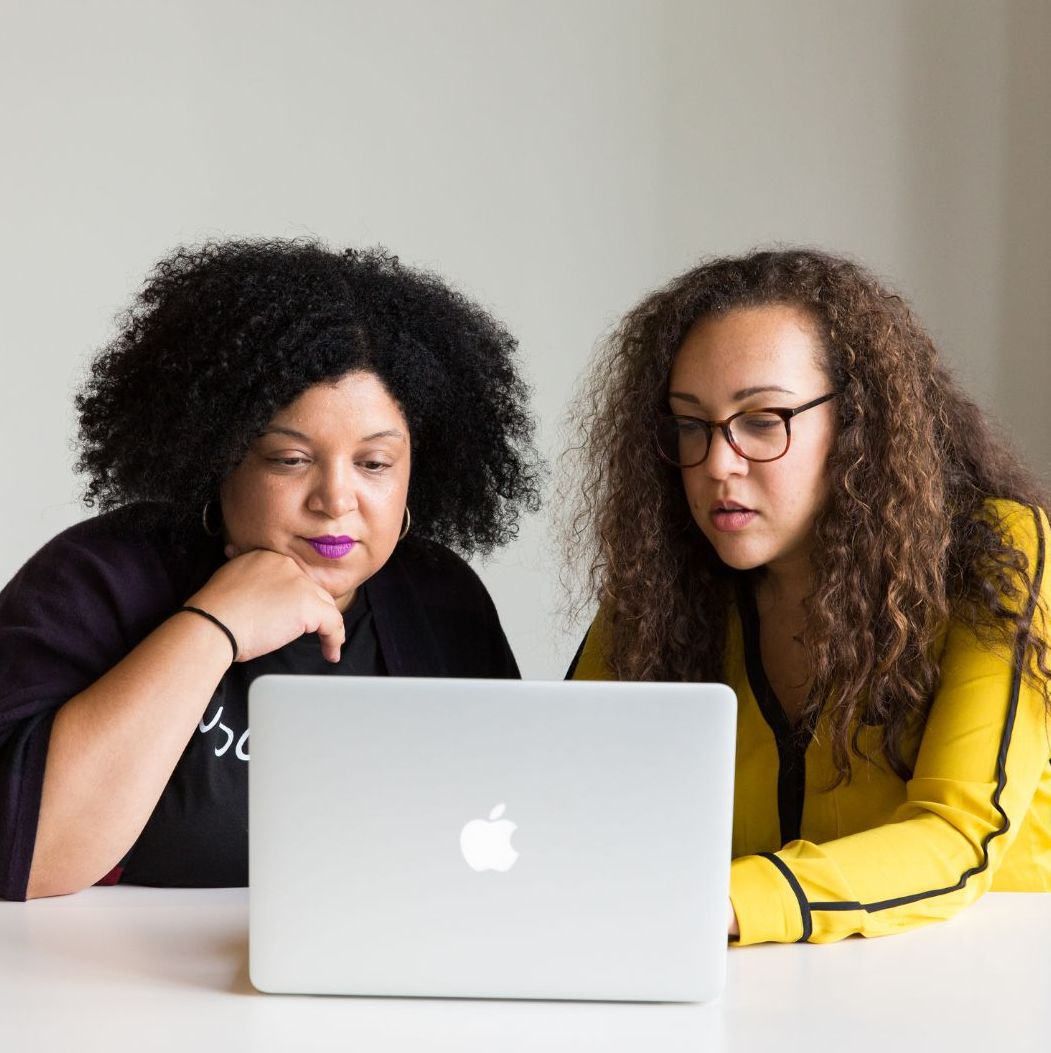Automated Translation Services for African Languages?
How Can Speech Data Enhance Automated Translation Services Between African Languages and Other Languages?
The need for effective and accurate automated translation services is more pressing than ever. This is especially true for African languages, which have historically been underrepresented in the digital domain. With over 2000 languages spoken across the continent, the challenge of bridging linguistic divides between African languages and other languages is formidable. Yet, it presents a unique opportunity to leverage technology for cultural preservation, economic development, and social integration. The key to unlocking this potential? Speech data.
The integration of speech data into automated translation services holds the promise of significantly enhancing the quality and accessibility of translation for African languages. But what exactly is speech data, and how can it transform the field of language translation? How does the processing of spoken language differ from text-based translation, and what are the implications for machine learning models? These are critical questions for data scientists, technology entrepreneurs, software developers, and industries that are pioneering the use of AI to advance their machine learning capabilities for improved data analytics and speech recognition solutions.
Key Challenges and Actions for African language Translation
The Importance of Speech Data in Automated Translation
Speech data encompasses the sounds, intonations, and rhythms unique to spoken language, providing a rich context that goes beyond the written word. For African language translation, this context is invaluable, capturing linguistic nuances often lost in text.
The significance of speech data in automated translation, particularly for African languages, cannot be overstated. Speech data encompasses more than just words; it includes the sounds, intonations, rhythms, and the subtle nuances unique to every spoken language. These elements provide a rich context that written text alone cannot convey.
For African languages, which are diverse and rich in oral traditions, the integration of speech data into translation services is crucial. It captures the essence of the spoken language, including idiomatic expressions, regional dialects, and cultural references that are often lost or misunderstood in text-based translation. This is especially important in a continent as linguistically diverse as Africa, where languages can vary significantly not just from country to country, but also within regions of the same country.
Moreover, the use of speech data in translation helps in preserving the intangible cultural heritage of African societies. Oral traditions, which are a fundamental part of many African cultures, can be accurately translated and shared with the wider world, fostering a greater understanding and appreciation of Africa’s cultural diversity. By capturing the way languages are spoken in real-life contexts, automated translation services can provide more natural, accurate, and culturally relevant translations. This not only improves communication but also aids in educational and preservation efforts, ensuring that languages and dialects at risk of disappearing are recorded and made accessible to future generations.
Challenges in Collecting Speech Data for African Languages
Collecting speech data for African languages presents unique challenges, including the diversity of dialects, limited written resources, and the need for culturally sensitive data collection methodologies.
Collecting speech data for African languages presents a complex set of challenges that go beyond technical difficulties. The continent’s linguistic diversity is unparalleled, with thousands of languages and dialects spoken across various regions. This diversity means that a one-size-fits-all approach to data collection is not feasible.

Many African languages also have limited written resources, making it difficult to create the large, annotated datasets necessary for training modern speech recognition systems. Moreover, the variation in dialects and accents within the same language can be vast, requiring data collection efforts to be both broad and deeply nuanced to capture the full range of linguistic diversity.
Additionally, culturally sensitive data collection methodologies are essential when working with communities across Africa. This involves more than just obtaining speech samples; it requires building trust with communities, understanding cultural nuances, and ensuring that data collection respects local traditions and values. Linguists and researchers must work closely with local speakers, employing ethical practices that prioritise consent and transparency. This collaborative approach not only improves the quality of the data collected but also supports the empowerment of local communities by involving them directly in the preservation and global sharing of their languages.
Speech Recognition Technology in African Languages
Advancements in speech recognition technology are pivotal for automated translation services. By understanding and accurately transcribing spoken African languages, these technologies lay the groundwork for effective translation.
The advancement of speech recognition technology plays a pivotal role in the development of automated translation services for African languages. Understanding and accurately transcribing spoken language are foundational steps in the translation process. However, the unique characteristics of African languages, such as tonal variations, click sounds, and extensive use of proverbs and idioms, present specific challenges for speech recognition algorithms. These technologies must be sophisticated enough to accurately capture these features, which are essential for understanding and conveying the meaning of the spoken words.
Developing speech recognition technology for African languages requires not only technical innovation but also a deep understanding of the linguistic landscape of the continent. This involves extensive fieldwork to collect speech samples across different regions and dialects, as well as collaboration with linguists and language experts to accurately model the languages.
The successful transcription of African languages lays the groundwork for effective translation, enabling more accurate and accessible communication for speakers of these languages. It also opens up new possibilities for the preservation of languages and the promotion of cultural exchange, as accurately transcribed speech data can be shared and studied globally.
The Role of Machine Learning in Speech Data Processing
Machine learning models are at the heart of translating speech data. These models learn from vast datasets to understand and predict language patterns, making them crucial for enhancing translation accuracy.
Machine learning stands at the core of translating speech data into actionable insights and accurate translations. These models, trained on vast datasets, are designed to recognise patterns, understand language structures, and predict linguistic outcomes. For African languages, where dialects and linguistic structures can vary greatly, the role of machine learning is even more critical. These models must be adaptable and sophisticated enough to navigate the complexities of multiple languages and their variations. The process involves not just the collection of large amounts of speech data but also the meticulous annotation of this data to train the algorithms effectively.
The integration of machine learning in speech data processing for African languages is a task that requires continuous refinement and learning. As models become more exposed to the intricacies of each language, their ability to accurately translate and recognise speech improves. This iterative process is essential for enhancing translation accuracy, which in turn, facilitates better communication, access to information, and preservation of linguistic diversity. However, the success of machine learning models in this context also depends on collaborative efforts between technologists and linguists, combining technical prowess with deep linguistic knowledge to refine and improve these models continually.
Data Annotation and Its Significance
Data annotation involves labelling speech data for machine learning, highlighting the importance of accuracy and context in understanding spoken language. For African languages, this means ensuring cultural and linguistic nuances are accurately represented.
Data annotation in the context of speech data processing is a meticulous task that involves labelling speech data with relevant linguistic information. This step is crucial for training machine learning models to understand and interpret spoken language accurately. In the case of African languages, the significance of data annotation is amplified due to the rich linguistic nuances, dialectal variations, and cultural contexts embedded within these languages.

Accurate annotation ensures that machine learning models can recognise and replicate these nuances in translation, thereby maintaining the integrity and richness of the original language. The process of annotating speech data for African languages requires a detailed understanding of linguistic features such as tone, rhythm, and context. Annotators must be well-versed in the language they are working with, often requiring input from native speakers and linguists to ensure precision.
This collaborative approach not only improves the quality of the annotation but also enriches the dataset with cultural and linguistic insights that are invaluable for the development of accurate and sensitive translation tools. The outcome is a more refined, context-aware translation that respects the original language’s subtleties, promoting clearer communication and a deeper appreciation of Africa’s linguistic heritage.
Overcoming the Low-Resource Language Barrier
African languages are often considered low-resource in the context of digital data. Overcoming this barrier involves innovative data collection and machine learning strategies to build comprehensive speech datasets.
African languages are often categorised as low-resource in the digital and technological realms, presenting significant challenges for the development of automated translation services. This designation refers to the scarcity of digital data, tools, and resources available for these languages, hindering the development of effective speech recognition and translation technologies. Overcoming this barrier requires innovative approaches to data collection, machine learning, and community engagement. Building comprehensive speech datasets for African languages involves not just the collection of speech samples but also the creation of tools and resources that can support the development of language technologies.
Innovative data collection strategies, such as mobile applications, community-driven projects, and collaborations with academic institutions, are essential for expanding the availability of speech data for African languages. These efforts, coupled with advances in machine learning that focus on low-resource language processing, can significantly improve the accessibility and quality of translation services.
Moreover, engaging with communities not only aids in data collection but also ensures that the development of language technologies is inclusive, respecting the linguistic diversity and cultural heritage of Africa. Bridging the low-resource language gap is a step towards equitable technological development, ensuring that African languages have a prominent place in the digital world.
The Impact of Speech Data on Translation Quality
Quality speech data can dramatically improve translation quality by enabling more accurate and contextually relevant translations, particularly for idiomatic expressions and cultural references.
The quality of speech data directly influences the accuracy and relevance of automated translations. High-quality speech data, characterised by clear recordings, diverse linguistic features, and comprehensive annotations, enables machine learning models to produce translations that are both accurate and contextually appropriate. For African languages, the impact of quality speech data is particularly pronounced. Given the rich oral traditions and the variety of linguistic nuances present in these languages, quality speech data ensures that translations capture the essence of the original speech, including idiomatic expressions, cultural references, and regional dialects.
Improving translation quality through better speech data has far-reaching implications for communication, education, and cultural preservation. Accurate translations enable clearer and more effective communication across different languages, breaking down barriers and facilitating cross-cultural exchange. In educational contexts, high-quality translations can provide access to knowledge and resources previously unavailable in local languages, supporting learning and development.
Furthermore, the preservation of linguistic and cultural nuances in translations contributes to the preservation of intangible cultural heritage, ensuring that future generations can access and appreciate the linguistic diversity of Africa. The investment in quality speech data is an investment in the future of language preservation, cultural exchange, and global communication.
Ethical Considerations in Speech Data Collection
Ethical considerations, including privacy and consent, are paramount in speech data collection. Ensuring ethical practices is essential for building trust and ensuring the respectful treatment of language data.
The collection of speech data, especially for African languages, is fraught with ethical considerations that must be meticulously addressed. Privacy, consent, and the respectful treatment of language data are paramount concerns that influence the integrity and sustainability of speech data collection efforts.
Ethical practices in this context involve transparent communication with participants, ensuring that they are fully informed about the purpose, use, and potential implications of their contributions. Consent must be freely given, with participants having the right to withdraw at any time. Additionally, the collection and use of speech data must respect cultural sensitivities and community norms, acknowledging the value and significance of the languages being recorded.
Addressing ethical considerations also involves the responsible handling and storage of data, protecting the privacy of individuals and communities. This includes measures to anonymise data where appropriate and secure storage solutions that safeguard against unauthorised access. Ethical data collection practices not only build trust with communities but also enhance the quality and reliability of the speech data collected. By prioritising ethical considerations, researchers and technologists can ensure that the development of automated translation services for African languages is both respectful and inclusive, fostering a collaborative environment that respects the rights and contributions of all participants.
Collaborations Between Linguists and Technologists
Collaborations between linguists and technologists are vital for developing effective automated translation services. Linguists provide deep insights into language structure and usage, while technologists offer the tools and methodologies to apply these insights at scale.
The development of effective automated translation services for African languages hinges on the collaboration between linguists and technologists. Linguists bring a deep understanding of language structure, usage, and cultural context, offering insights that are critical for accurately modelling and translating languages.

Technologists, on the other hand, provide the computational tools and methodologies necessary to apply these linguistic insights at scale. This synergy between linguistic knowledge and technological innovation is essential for overcoming the unique challenges presented by African languages. Collaborations between linguists and technologists can take various forms, from joint research projects to interdisciplinary teams within technology companies.
These collaborations facilitate the exchange of knowledge and skills, enabling the development of translation technologies that are both linguistically accurate and technologically advanced. For instance, linguists can guide the annotation of speech data, ensuring that it accurately reflects linguistic nuances, while technologists can develop algorithms that effectively learn from this annotated data. Through collaborative efforts, the gap between linguistic diversity and technological capability can be bridged, leading to the creation of translation services that truly meet the needs of speakers of African languages.
Future Directions for African Language Translation Services
The future of African language translation services lies in the continued development of speech data resources, machine learning models, and technologies that understand and respect the diversity of African languages.
The future of African language translation services is poised for significant growth and innovation, driven by advances in speech data collection, machine learning, and collaborative efforts between linguists, technologists, and communities. As speech recognition and translation technologies continue to evolve, there is a growing opportunity to enhance the accessibility and quality of translation services for African languages. This involves not only improving existing technologies but also exploring new approaches and methodologies that can better capture the linguistic diversity of the continent.
One of the key areas of focus for the future is the development of machine learning models that are specifically designed for low-resource languages. These models, trained on diverse and comprehensive datasets, have the potential to significantly improve translation accuracy and fluency. Additionally, the use of technologies such as neural machine translation and deep learning offers new possibilities for capturing the subtleties of language, including tone, context, and cultural nuances.
Alongside technological advancements, the importance of community engagement and ethical practices remains paramount, ensuring that the development of translation services is inclusive and respectful of linguistic diversity. By embracing innovation and collaboration, the future of African language translation services looks bright, with the potential to transform communication, education, and cultural exchange across the continent.
Automated Translation For Africa – Key Tips To Action
- Leverage diverse speech datasets to ensure translation models understand the nuances of African languages.
- Prioritise ethical data collection practices to respect the privacy and cultural heritage of speech data contributors.
- Collaborate with linguists to ensure translations maintain cultural and linguistic accuracy.
- Innovate in machine learning to overcome the challenges of low-resource languages.
- Way With Words provides highly customised speech data collections for African languages, aiding technologies in achieving superior translation quality.
- Their services support a range of use cases, from automatic speech recognition models to machine transcription polishing, tailored for African languages where AI and language speech are key.
Enhancing automated translation services between African languages and other languages through speech data is not just a technological endeavour; it’s a cultural and linguistic bridge-building exercise. Speech data enriches the translation process by bringing the subtleties of spoken language into the fold, making translations more accurate, contextually relevant, and culturally sensitive. However, realising this potential requires overcoming significant challenges, including the collection and annotation of speech data, ethical considerations, and the development of advanced machine learning models suited to the unique characteristics of African languages.
The collaboration between linguists, technologists, and communities is essential in this journey, as is the commitment to ethical and inclusive practices. With the right approach, speech data can transform automated translation services, making them more accessible and effective for the millions of speakers of African languages worldwide. The key piece of advice? Embrace the complexity and diversity of African languages as a strength, not a barrier, in the development of automated translation technologies.
Automated Translation Services for African Languages
- Global African Speech Data Collection Resource: – A comprehensive service offering access to essential information and resources for the collection of African speech data on an international scale.
- African Language Speech Collection Solution: – Custom speech datasets for African languages, including transcripts for machine learning purposes, aimed at improving ASR models using NLP.
- Machine Transcription Polishing of Captured Speech Data: – Polishing service for machine transcripts across various technologies, supporting AI and machine learning applications in African languages.
